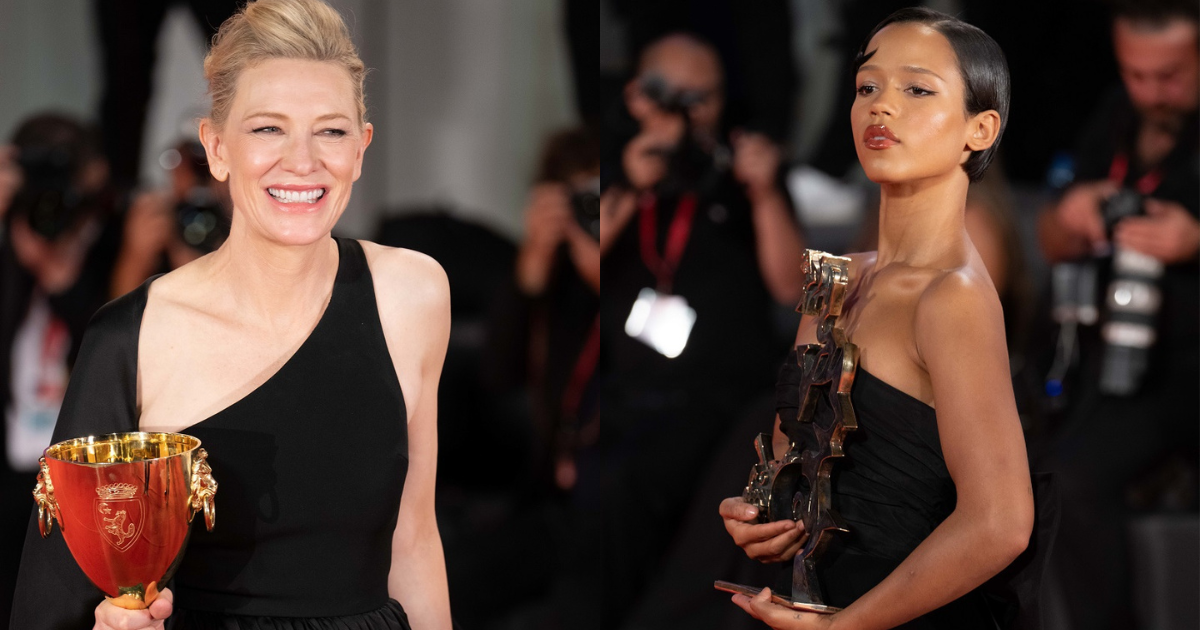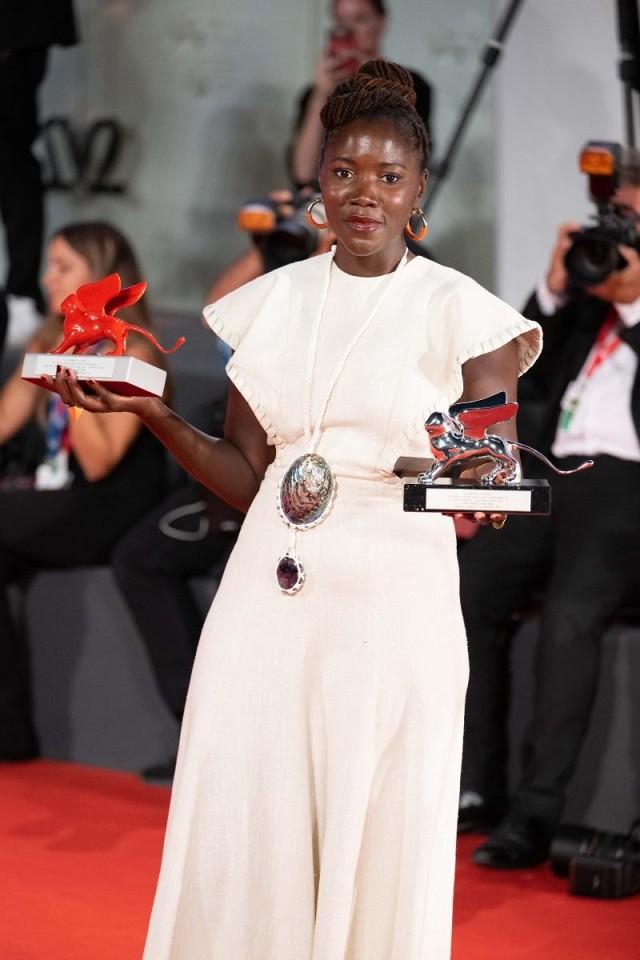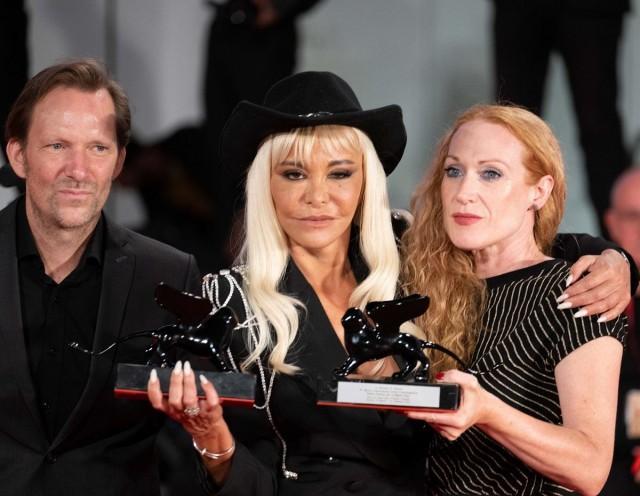
LOS ANGELES — Despite the presence of Hollywood bigwigs and big budgeted movies, two women with small-budgeted movies won the top awards at the recently held 79th Venice Film Festival.
Laura Poitras won the Golden Lion for Best Film for her movie, "All the Beauty and the Bloodshed" while Alice Diop bagged two awards—the Silver Lion Grand Jury Prize and the Luigi De Laurentiis Lion of the Future Award for Best Debut Feature for her film, "Saint Omer."
In a jury headed by actress Julianne Moore as president, the choices were pleasant surprises.
Filmmaking is such a competitive field that we herald the women who share their cinematic vision without any excuses and qualms.
This year, a total of 21 films are eligible for the Golden Lion award, La Biennale di Venezia's highest honor. Five movies—23 percent of the slate—are by women directors. It was 24 percent last year.
For Best Actress, Cate Blanchett bagged the coveted prize with her impressive portrayal of the ambitious and driven Lydia Tar, the first female conductor in a major German orchestra who was even an EGOT (Emmy Grammy Oscars Tony) awardee in the psychological drama helmed by Todd Field, "Tar."
Grabbing the Marcello Mastroianni Award for Best Young Actor was 28-year-old Canadian actress Taylor Russell after her memorable performance as Maren Yearly, a teenage cannibal with Timothée Chalamet in the Luca Guadagnino-helmed film, "Bones and All."
Meanwhile, in the Orizzonti category, filmmaker Tizza Covi, together with her co-director Rainer Frimmel, won the Best Director award for their film, "Vera," which also won the Best Actress Award for their lead, Vera Gemma.
Below we would like to highlight the winning women filmmakers at the 79th Venice Film Festival.
In Competition
"All the Beauty and the Bloodshed" – Laura Poitras (Winner Golden Lion for Best Film)

Growing up, Laura Poitras at first wanted to be a chef but then lost interest. Instead, she studied at the San Francisco Art Institute with experimental filmmakers Ernie Gehr and Janis Crystal Lipzin. She then moved to New York to pursue filmmaking.
Poitra's documentary entry, "All the Beauty and the Bloodshed," is about internationally renowned artist and activist Nan Goldin as told through her slideshows, intimate dialogue, ground-breaking photography, and rare footage of her fight to hold the Sackler family and their Purdue Pharma accountable for the opioid epidemic.
"I was first drawn to the present-day horror story of a billionaire family knowingly creating an epidemic, and then funneling money into museums in exchange for tax write-offs and naming galleries. But as we (she and Goldin) talked, I realized this was only one part of the story I wanted to tell, and that the core of the film is Nan's art, photography, and the legacies of her friends and sister Barbara. A legacy of people escaping America," Poitras said.
"Saint Omer" – Alice Diop (Silver Lion Grand Jury Prize and Luigi De Laurentiis Lion of the Future Award for Best Debut Feature)

Born to Senegalese parents, Alice Diop is a documentarian who was raised in Aulnay-sous-Bois near Paris. Saint Omer is her first narrative feature.
The French film is about a young pregnant novelist Rama (Kayije Kagame) who attends the trial of Laurence Coly (Guslagie Malanga), a Senegalese woman accused of murdering her 15-month-old child by leaving her on a beach to be swept away by the tide. Rama hopes to turn the tragic event into a modern-day retelling of Medea.
"In June 2016, I attended the trial of a woman who killed her baby daughter by dropping her off at high tide on a beach in France. I imagined that she wanted to offer her to the 'sea', a more powerful 'mother' than she could be," Diop said.
"Inspired by a true story but fueled by an imagination that summoned mythological figures, I wrote this film: the story of a young novelist who attends the trial of an infanticidal mother with the aim of writing a contemporary version of the Medea myth. But nothing will happen as she had planned. The opacity of the accused will constantly return her to her own ambiguity about motherhood. It is a film that I wanted to make to probe the unspeakable mystery of mothers."
Orrizonti
"Vera" – Tizza Covi (Best Director)

Tizza Covi is an Italian screenwriter and director who lived in Paris and Berlin before studying photography in Vienna. Since 1996, she has worked together with Rainer Frimmel with whom she co-founded their own film production company, Vento Film.
"Vera," which she co-directed with Frimmel, is about an upper-class woman seeking an escape from high society. Vera lives in the shadow of her famous father. Tired of her superficial life and relationships, she drifts through Roman high society. When she injures a child in a traffic accident in the suburbs, she forms an intense relationship with an eight-year-old boy and his father. But soon, she must realize that also in this world, she is only an instrument for others.
"At the beginning of every idea for a film stands curiosity about the lives of others, and the attempt to understand what this life really looks like behind the facade," Covi said. During filming, the real people remain real and at the same time, they are transformed into fictional characters. And at the end of filming, even we no longer know what is true and what we have invented."
—MGP, GMA News




